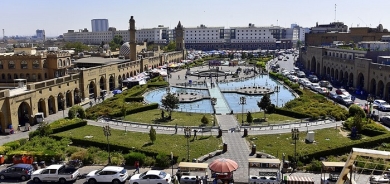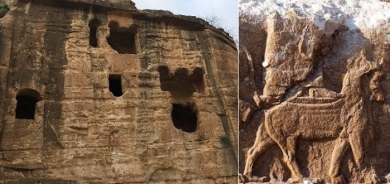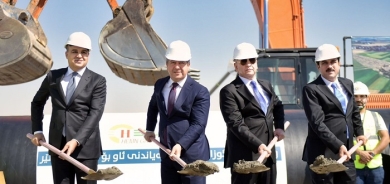Egypt will open nominations for presidential elections March 10

Abdel Moez Ibrahim, a member of the supreme committee for presidential elections, told Al Ahram online the preparations would start once elections for the Shura council, or upper house of parliament, ended later this month.
He said the decision followed pressure from political groups to speed up the transfer of power to civilians. A second official confirmed the date.
The head of the ruling military council, Mohamed Hussein Tantawi, had called for a quick completion of the election procedures.
“Field Marshal Tantawi stressed the need for quick completion of these procedures and their announcement,” the Egyptian state news agency reported after Tantawi met the head of the constitutional court.
An Egyptian election official said nominations for the presidential election race would be accepted from March 10, according to the semi-official Al Ahram media website.
Thirteen people have died in the violence which erupted in Cairo and the eastern city of Suez after 74 people were killed at a soccer match, drawing a stinging rebuke of Egypt’s army-backed government.
The fighting has reduced a swathe of central Cairo to a rock-strewn battle zone as angry football fans and young revolutionaries demanding the generals relinquish power clash with riot police armed with batons, tear gas and shotguns.
Some citizens formed lines across streets near the interior ministry to try to separate the two sides. But the fighting flared again on Monday afternoon, with up to 1,000 mostly young men hurling rocks and stones through the acrid clouds of gas.
Police crowded around protesters close to their lines, raining down blows with batons and dragging them away senseless towards the ministry, which was sealed off from the city with concrete blocks laid across roads since Sunday.
“The military council wants this (clashes),” said Ahmed Ibrahim, an activist. “They are happy with it... We had two truces that were broken by the police.”
What began as a protest at the police’s failed handling of security at a soccer match has now become another broad protest against the army, which some Egyptians accuse of blocking real change in Egypt after the overthrow of Hosni Mubarak a year ago.
Many are angry there has not been a deep clear-out in the police force and that officers use the same heavy-handed tactics against protests as in Mubarak’s era.
The crowds of protesters have thinned to hundreds from thousands since the weekend when they came within metres of the ministry building, symbol of a security regime that many Egyptians say remains unreformed despite Mubarak’s overthrow.
Graffiti covers walls down Mohamed Mahmoud Street, epicentre of the latest violence, reading, “down, down with military rule” and “we want revolutionary law”.
Some residents frightened by the scenes of chaos said the protesters were threatening to bring the country to its knees.
“What’s happening isn’t bringing down the regime but bringing down the state,” said Haytham Ismail, an employee at a newspaper legal compliance department.
Parliament speaker Mohamed Saad al-Katatni appealed for restraint.
“Civil defence forces are now firing cartridges and tear gas and I am asking the Interior Minister to order troops not to disperse protesters using force,” he said. “I demand that the protesters abide by the law and do not assault buildings.”
Faster transition
In an apparent concession to the army’s critics, the government said on Sunday it was preparing to move Mubarak to a Cairo prison hospital from a military hospital.
Protesters have long complained the generals were sparing their former commander the humiliation of jail by detaining him in a military hospital during his trial over the deaths of protesters during the uprising that ousted him.
The protesters are demanding a quick presidential election and an early handover of power by the army.
The Muslim Brotherhood which has the biggest bloc in a newly elected parliament, added its voice on Saturday to calls for a faster transition to civilian rule.
Political figures and a civilian advisory body to the military have suggested bringing forward a presidential vote to April or May, from the June date foreseen in the transition timetable of the army, which took power after Mubarak quit.
An army-appointed civilian council set up to advise the military is proposing accepting nominations for the presidency from Feb. 23, nearly two months sooner than the April 15 date previously announced. This could lead to a vote in April or May.














